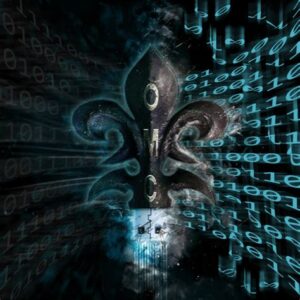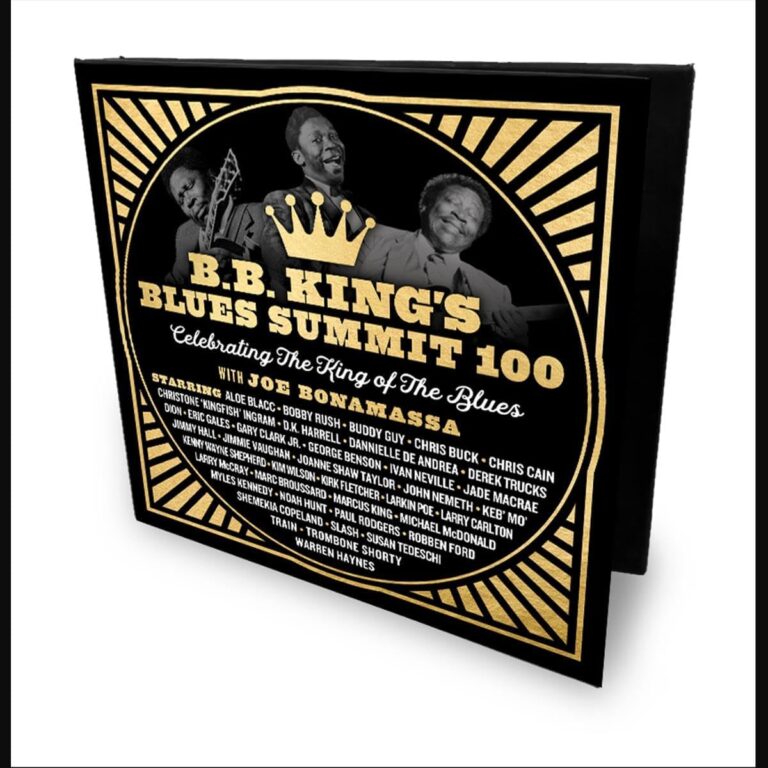Ambition in music can be an elusive thing. Although any number of bands claim to be pushing boundaries, it is something that comparatively few artists actually do, so it seems strange that Geoff Tate’s bold, three-album cycle, released under the Operation Mindcrime moniker, has not accrued more of a response. Not only ambitious, but also impressive in execution, the trilogy that began with 2015’s ‘the key’ has now concluded with the almost wilfully obtuse ‘the new reality’, a jazz-infused progressive work which, whilst not without its flaws, nonetheless brings to a close a project that few artists would even consider attempting.
Picking up where ‘resurrection’ (arguably the best of the three records) left off, ‘the new reality’ kicks off with Geoff’s shimmering keyboards emerging into the Pink Floyd-esque ‘A head long jump’. This is slow-building, often ethereal music that reflects the somewhat metaphysical plot twists the album details, and it takes time to fully engage with what Geoff and his band are up to. However, as vast tribal rhythms and the churning guitars of Kelly Gray and Scott Moughton appear, it’s clear that Geoff has lost none of his touch for grand, theatrical gestures. Unfortunately, it is also here that it becomes apparent that the album’s mixing (credited to Kelly Gray) is somewhat off-balance, with Geoff’s vocals often quite low beneath the layers of synth and guitar. It’s not a deal breaker – the complex arrangements and intelligent material are more than worth working a little harder to appreciate – but it’s a shame that the album doesn’t have the same clarity as its predecessor (also mixed and mastered by Kelly). A faster-paced and heavier track is ‘wake me up’, which proves to be a straight-up rocker closer in spirit to ‘the key’ before we head into the dark, synth territory of ‘It was always you!’, which channels the cinematic scores of Vangelis and then pummels them with layer upon layer of tribal percussion. Turn it up and you’ll start to really appreciate the various elements built into the arrangement, as guitars scratch across the surface and Geoff delivers his vocals in a percussive style reminiscent of Queensryche album ‘tribe’, only for the piece to suddenly spin off into spoken-word jazz territory pitched somewhere between David Bowie and Miles Davis. This is not music as an instant fix, but it is representative of an artist who remains absolutely convinced of the need to continually push the creative boundaries, and if you’re open to a record that works best as a complete piece, then there is much to enjoy here. Album highlight ‘the fear’ is driven by epic percussion, and if the synth patches that threaten to overpower the intro feel somewhat dated, the pay-off is a taut, syncopated piece of music that offers up surprises at every turn. Another shift occurs as we enter into the mid-paced alt-metal of ‘under control’, a track that harks back to the underrated Queensryche album ‘hear in the now frontier’, but it’s a short-lived piece and it soon breaks down into atmospheric synths that herald the arrival of ‘the new reality’. A lengthy and complex piece that runs the gamut from atmospheric progressive rock to pile-driving metal, ‘the new reality’ demonstrates the dynamic shifts that punctuate the album perfectly in microcosm. For sure this isn’t the bombastic metal of the Queensryche album from which the band took their name, but there’s no question that it taps into the same vein of ambition, tempered by a maturity drawn from the years that separate the two.
Emerging directly from the synth washes that end its predecessor, ‘my eyes’ opens the second half of the album on a dark, nervy note, all scattered percussion and synth washes. Pitched somewhere between Geoff’s last solo album and Porcupine Tree, there are some really interesting textures employed here, although the sheer weight of percussion threatens to overwhelm in places. A softer, more reflective tone emerges on ‘a guitar in church?’, an instrumental track, largely synth led (despite its title) that feels like the soundtrack to some unseen movie. It is an odd place for so lengthy an instrumental track, and it adds to the ambient feel which emerges for the latter half of the album and which continues over into ‘all for what?’ With a lengthy intro that utilises rhythmic electronic elements to build an uncomfortable atmosphere over which Geoff’s spoken word interjections echo, it’s a fine song, with strong shades of classic ‘Ryche in places, not to mention a remarkable performance from Geoff, although it is also somewhat schizophrenic, edging from prog-metal majesty to jazzy noodling and back again with little attention to convention. Those seeking an easy ride need not apply here. Synths continue to dominate as the ‘tribe’-esque ‘the wave’ delivers a relatively instant hit whilst the short segue track, ‘tidal change’ serves as a bridge to the Bowie-esque coda, ‘the same old story’. An enigmatic finale, ‘the same old story’ brings the album, and the trilogy to a close on a somewhat ambiguous note, which is presumably what Geoff intended all along.
‘A New Reality’ marks the end of Geoff’s weighty, progressive trilogy and it is a largely successful conclusion to a complex tale. It’s not all perfect. Kelly’s production tends to weight the synths and drums far more heavily in the mix than the guitars, and this choice occasionally threatens to detract from the varied and interesting arrangements that characterise the album. It is also an album that requires a certain degree of work on behalf of the listener – there are few easy tracks to draw you in with an easy hook – and it is arguable that this is a record best heard as a complete piece. Many will quite probably be unwilling to dedicate such time and attention in this modern world of consumption and rejection, but for those who do, a worthy experience awaits. Whilst not the best of the three albums that make up the cycle, ‘a new reality’ remains an ambitious and intriguing piece of music that sees Geoff continue to make music that appeals as much to the head as to the heart. 7




